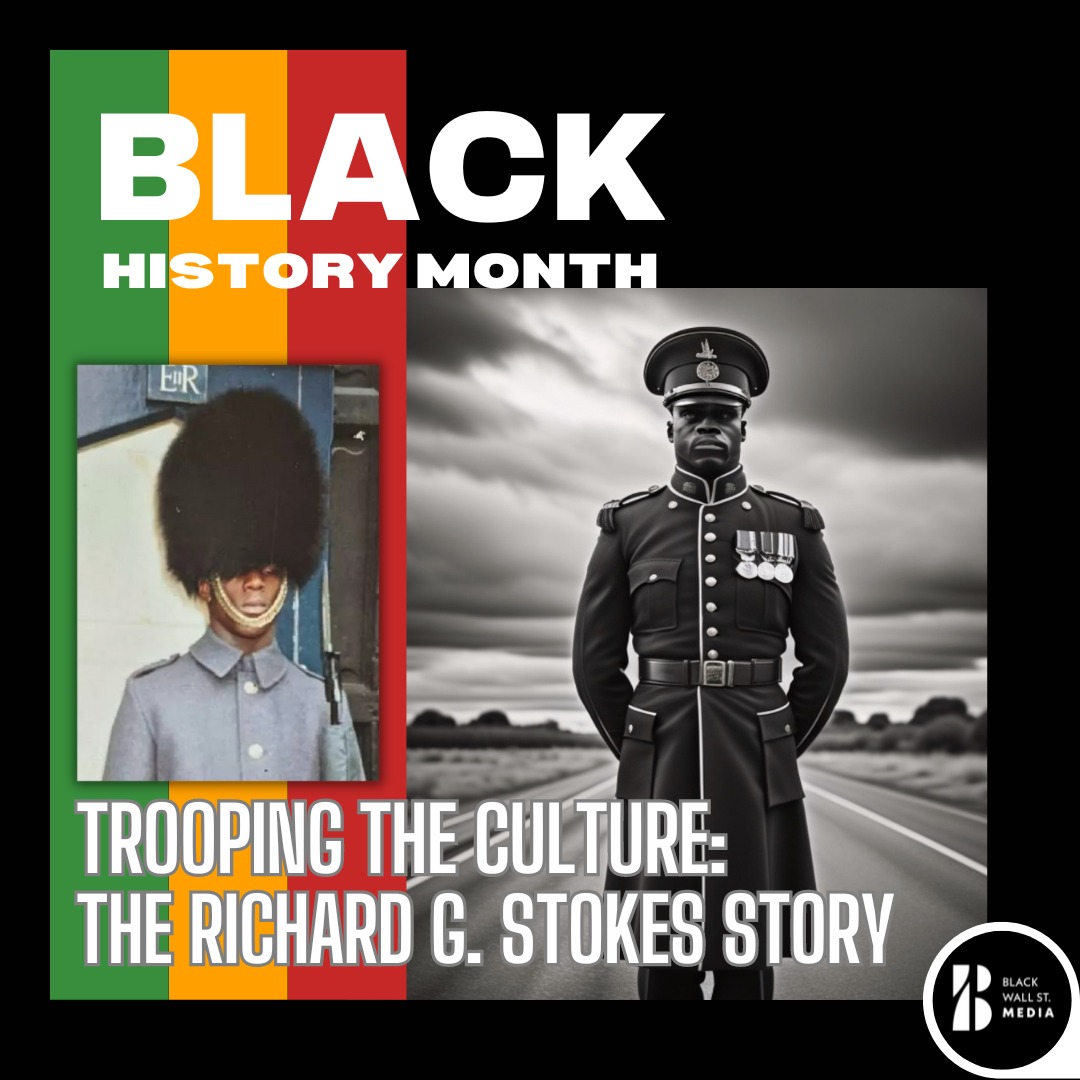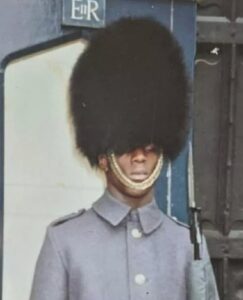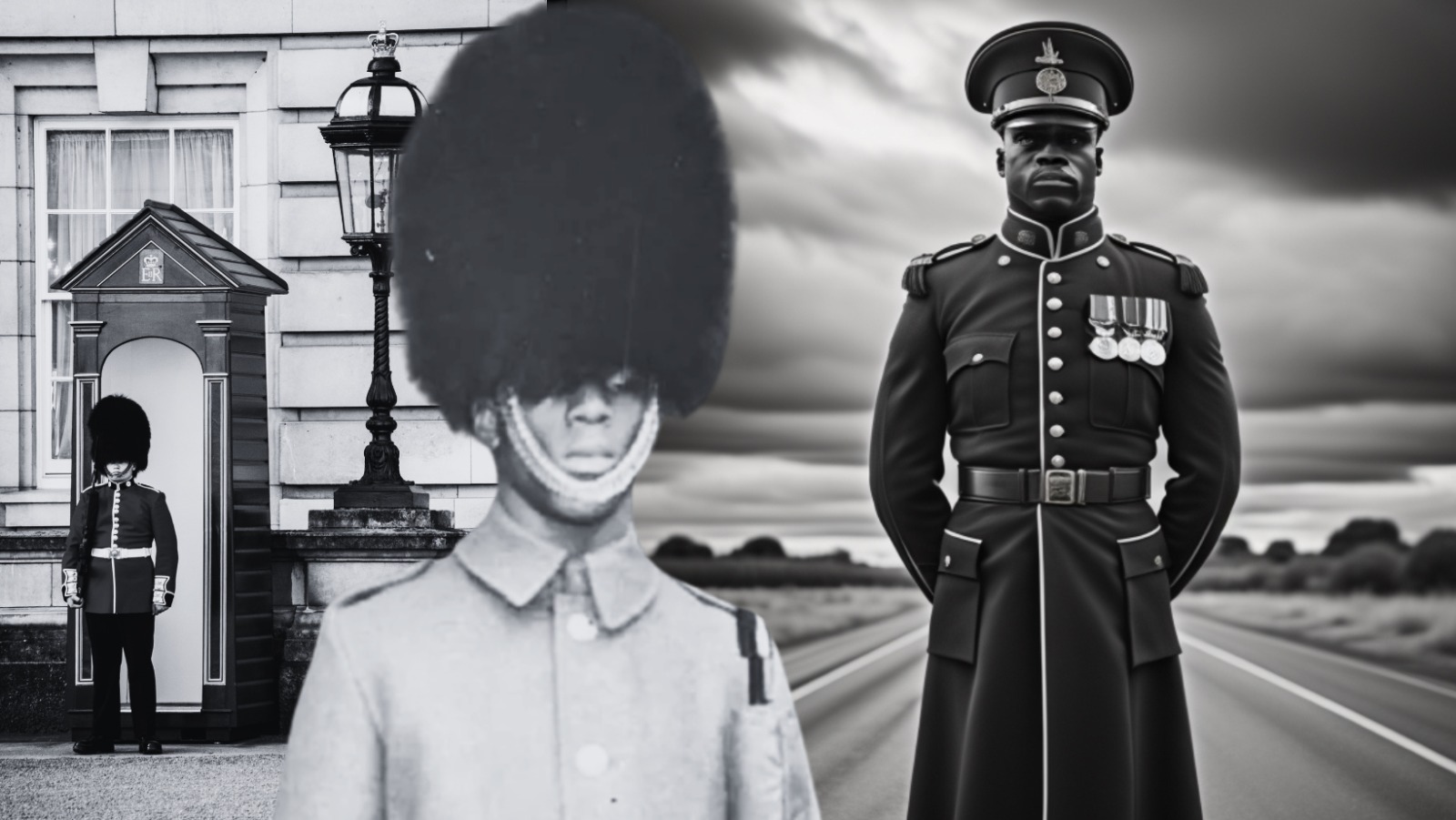HISTORY
Trooping the Culture: The Richard G. Stokes Story
“✨ Spotlight on a trailblazer this #BlackHistoryMonth! Dive into the powerful journey of Richard G. Stokes, the first Black Queen’s Guardsman. Amidst challenges and triumphs, his story embodies resilience and strength. Get ready to be inspired!”
Black Wall St. MediaContributor

Richard G. Stokes: Breaking Ranks, Shaping History
Introduction
Black History Month not only celebrates the achievements of remarkable individuals but also sheds light on those who endured and triumphed over adversity.
Richard G. Stokes stands tall among them. His groundbreaking journey as the first Black Queen’s Guardsman and the trials he endured serve as a powerful beacon for resilience, courage, and change.
From Bristol to Buckingham Palace

Richard Stokes, from Bristol, the first Black royal guardsman (Image: Richard Stokes)
Born on December 16, 1969, in Bristol, Richard Stokes’ journey towards redefining British military history commenced in September 1986. As a Junior Leader in the Grenadier Guards, he would travel across the globe.
From the tense terrains of Ballykelly in Northern Ireland during 1987-1988 to the wild landscapes of Kenya in 1988 and Canada in 1989, and the disciplined confines of Caterham, Surrey, from 1988-1990, Stokes left an indelible mark wherever he went.
A pivotal moment in his career and British military history came when Stokes became the first Black guardsman to participate in the iconic Changing of the Guard at Buckingham Palace. His steps echoed not just on the cobblestones of the palace but across the pages of history.
Trials and Triumphs
While the grandeur of Buckingham Palace was significant, it was in the barracks that Stokes faced his most challenging battles.
Within the confines of the army’s walls, racist taunts and incessant bullying became a disturbing norm for him. The mental scars from these experiences pushed Stokes to take the heartbreaking decision to leave the Guards in December 1990.
Despite the turbulence, his valiant service didn’t go unnoticed. He was awarded the General Service medal with a clasp for Northern Ireland, a badge of honor that now graces the display of the National Army Museum.
Challenging the Status Quo
The 1980s military landscape was dominated by rigid mindsets resistant to change. Denis Healey, the then Defence Secretary, had vividly captured the pervasive skepticism towards ethnic minority inclusion in his autobiography.
This “preposterous” idea, as it was seen, faced monumental challenges. Yet, when stalwarts like Prince Charles advocated for diversity and championed the cause of ethnic quotas, the tides began to shift.
A Legacy in Print and Purpose
Capturing his experiences, challenges, and reflections, Stokes penned “Trooping the Culture.” The book is not just a memoir but a testament to the indomitable spirit that challenges biases and champions change.
It offers readers an intimate look into the life of a trailblazer, from the streets of Bristol to the opulence of royal ceremonies, and the harsh realities faced in between.
In his present role as the Diversity and Inclusion Manager for Avon Fire and Rescue Service, Stokes continues to redefine narratives. Every day, he ensures the ethos of inclusivity permeates the organization, promoting an environment where diversity is celebrated and biases are dismantled.
Conclusion
This Black History Month, Richard G. Stokes’ story stands as a monumental testament to human resilience.
His legacy is not just that of a military man breaking barriers but of an individual who faced adversity head-on and emerged stronger.
Through his journey and the countless others that Black History Month honors, we’re reminded of the power of persistence and the significance of change.
”As we look back at these stories, they inspire us to forge ahead, carrying the torch of diversity, inclusivity, and relentless determination into the future.
Black Wall St. MediaContributor







